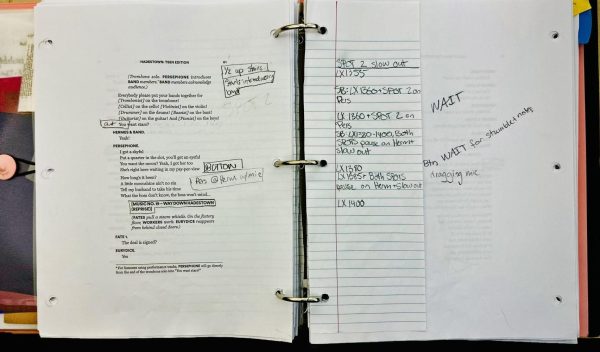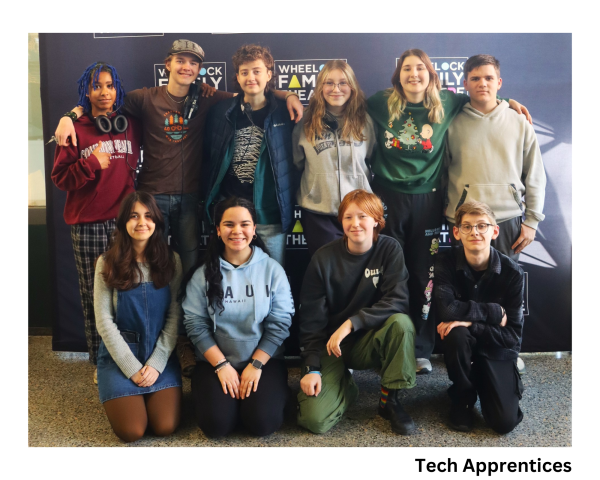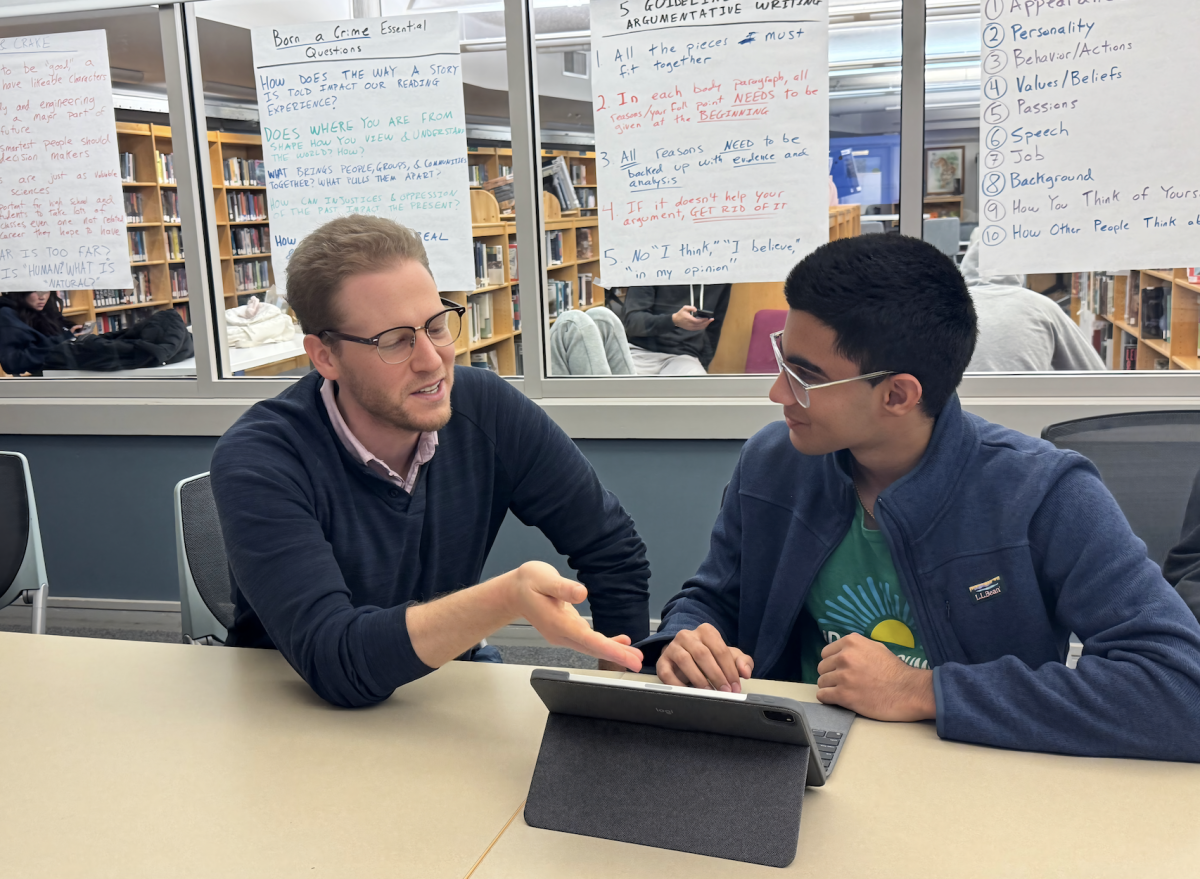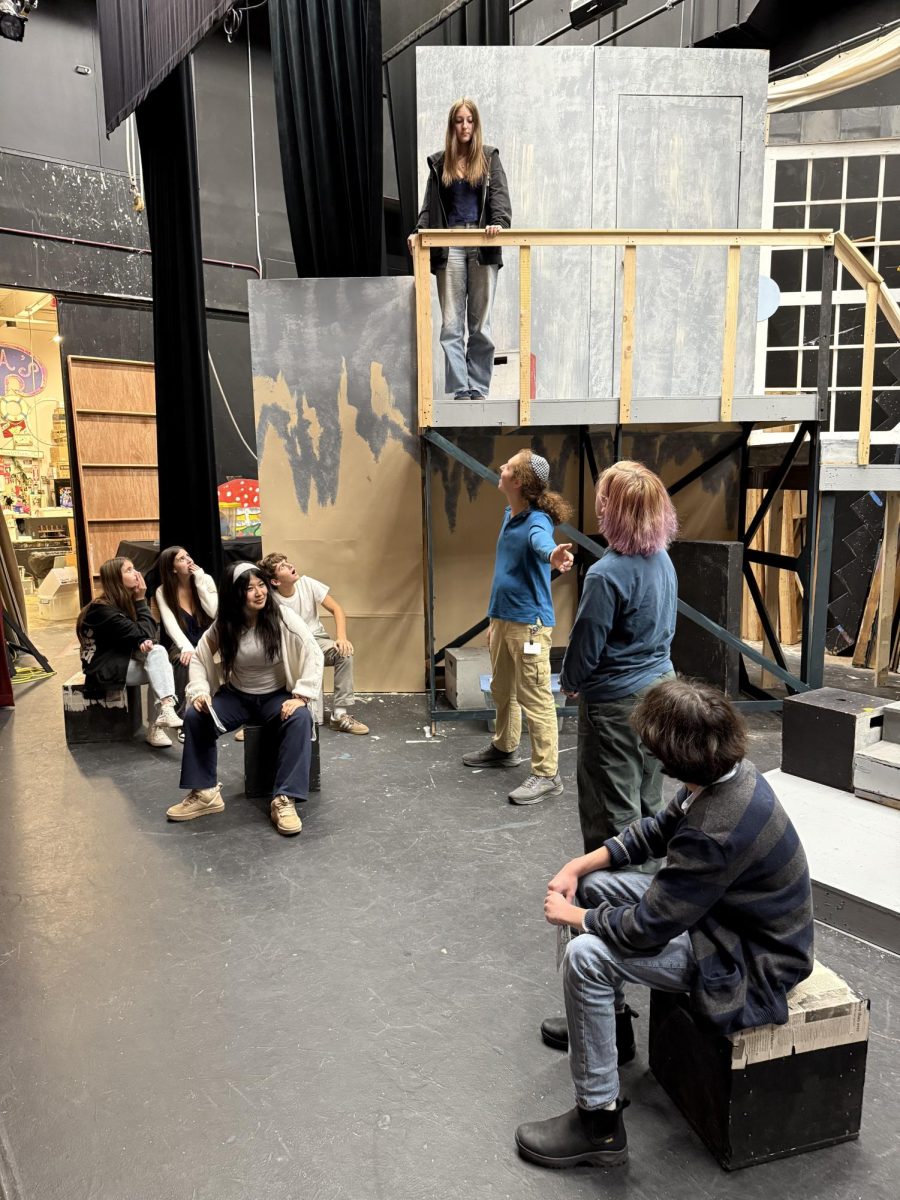Have you ever flipped to the back of a playbill and looked through the “About the Cast” section of the program? You will likely see the characters they play, past credits, and headshots.
If you keep flipping the page to the very end, that’s where the technical team is listed: designers, technicians, front of house support, and many people who have worked behind the scenes to make the show happen.
Everything you’re seeing is a carefully curated performance of art, physical exercise, and skill which is designed to immerse you in the world theatre creates.
However, many people are unaware of the hard work theatre technicians put in to produce this experience.
My first engagements with theatre were in elementary school, through performance. It shaped who I am today and provided a space for me to flourish and grow. However, there was just one element I was missing with acting, and as I grew older, I felt more pressure. It began to feel like a chore.
In the spring of fourth grade, everything changed. COVID-19 hit and changed so many lives forever. I was homeschooled for a year, and then in 6th grade I came here.
A new school, new classmates, and a new theatre program were now my life. I remember the moment I heard about technical theatre from Mrs. U-C at assembly the first day.
A different way to interact with theatre? Sounds like a fun new thing to try, I thought.
Little did I know I would find a community that I can always rely on for endless support and joy.
Tech theatre is different from acting in many ways, yet so similar. I started out by helping with odd jobs during rehearsal. When my first tech week came as a technician for The Witches, I dove into the world of sound.
I learned about the power a board operator has during a performance. One wrong move, one mis-click of the GO button, and the whole audience hears your mistake. There is no improvisation–everything is timed out to the second.
From there, I moved into stage management, which is undeniably the hardest job you can do in theatre.
Student stage managers are responsible for the success of the cast and crew of the show, communicating with all the technicians, giving information to every department, while being a full-time student.

In professional theatre, the job starts with the playwright, and ends when the set is dismantled, costumes returned to storage, and actors released after the performances.
My desire for perfection, thoughtful communication, and true commitment caused me to thrive in this role. I began as an assistant stage manager in the spring of 6th grade and have been on the stage management team for six school productions since.
With out-of-school theatre, extra hours spent in the school’s space, and wonderful mentors to guide me, tech has become a fundamental part of who I am, and always a safe space.
Being a queer person, especially as a teenager, is difficult, but I know that I will always have a place to call home.
In stage management we have an acronym which represents the core principles of the role: CHAOS.
This stands for communication, help, adaptability, order, and system. All these principles are essential parts of what it takes to be a good leader and resource.

Each aspect is important in its own way and is important to keep in mind.
I have expanded my interest in lighting as well. It may seem like there’s not much to this category, but lighting creates setting and mood in subtle and dramatic ways that add so much to a show.
It is a combination of working with your hands doing electrician work, problem solving, and design. I have been teaching myself how to program our light board here at the school through tutorials and jump at opportunities to stay late after rehearsals to shadow the talented designers the School hires.
I am grateful to have found something I enjoy deeply so early in life. I know that wherever I end up in life, I will never stop enjoying the time I spend in a theater making art I feel proud of and being around people I love.
























































